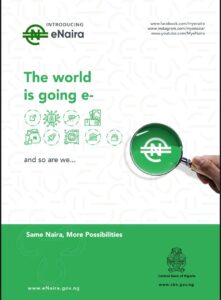The growth witnessed by Nigeria’s music industry over the last decade is undeniable. There has been tremendous progress, from revenue generation to the exportation of the African sound, proudly showcased by Nigerian music stars whose artistry has captured the world’s attention. Nigerian artistes like Burna Boy, Wizkid, Rema, Davido, and others are outselling arenas with several thousand seats as people from different nationalities fill auditoriums to capacity to experience their live performances.
However, despite the commendable achievements of the industry, including its yearly revenue of $2 billion, discussions on how to sustain this momentum, further its advancement, and address new challenges that often arise with growth are at the forefront of Nigeria’s entertainment leaders’ minds.
For example, the controversial death of the fast-rising Nigerian musician, Ilerioluwa ‘Mohbad’ Oladimeji Aloba, who was previously signed to Marlain Records, has highlighted the need to re-evaluate the contracts young artistes sign with record labels at the beginning of their careers.
Speaking at the 7th edition of the Calabar Entertainment Conference (CEC) on Friday, October 6, 2023, at the Cultural Centre Complex in Cross River State, entertainment lawyer Amanda Uzoagba provided insights into what artistes need to consider before signing a contract.
“The importance of signing a contract is to stipulate the nature of the relationship an artiste will have with a record label”, Uzoagba said during the panel session titled Contracts and the Music Industry.
She continued; “In too many cases, artistes are blinded by the allure of big numbers and overlook the fine print in their contracts. I’ve encountered an artiste in Enugu who unknowingly signed away 13 years of their career to a label. It’s a stark reminder that knowledge and diligence are vital in the music industry.”
Moderated by radio personality Bisong Fortune, the informative panel session also featured US-based Nigerian musician Challex D Boss, who shared real-life examples relevant to the entertainment industry.
“From my experience, I’ve learned that making music in Nigeria is actually easier than in America because the bureaucratic paperwork overseas can be overwhelming,” Challex said. While the process appears easier, which has benefitted the Nigerian music industry as it is easier to record in Nigeria and export abroad, Challex noted that it is necessary for artistes to understand the terms properly and demand what they want.
“As a young artiste, landing your first record deal can feel like a dream come true, especially with the promise of money. But what does the record label want from you? I once signed a contract with a label just to record five EPs for them.”
Challex D Boss shared his personal experience with record labels during a panel session themed “Contract and the Music Industry.”
Organised by Hit FM, the CEC is the most prominent roundtable entertainment discussion in South-South Nigeria. With the theme “Uniting Creativity And Business In Entertainment,” this year’s event not only attracted some of Nigeria’s top entertainers and industry experts but also aimed to establish itself as one of the leading voices in the advancement of the entertainment industry nationwide.












